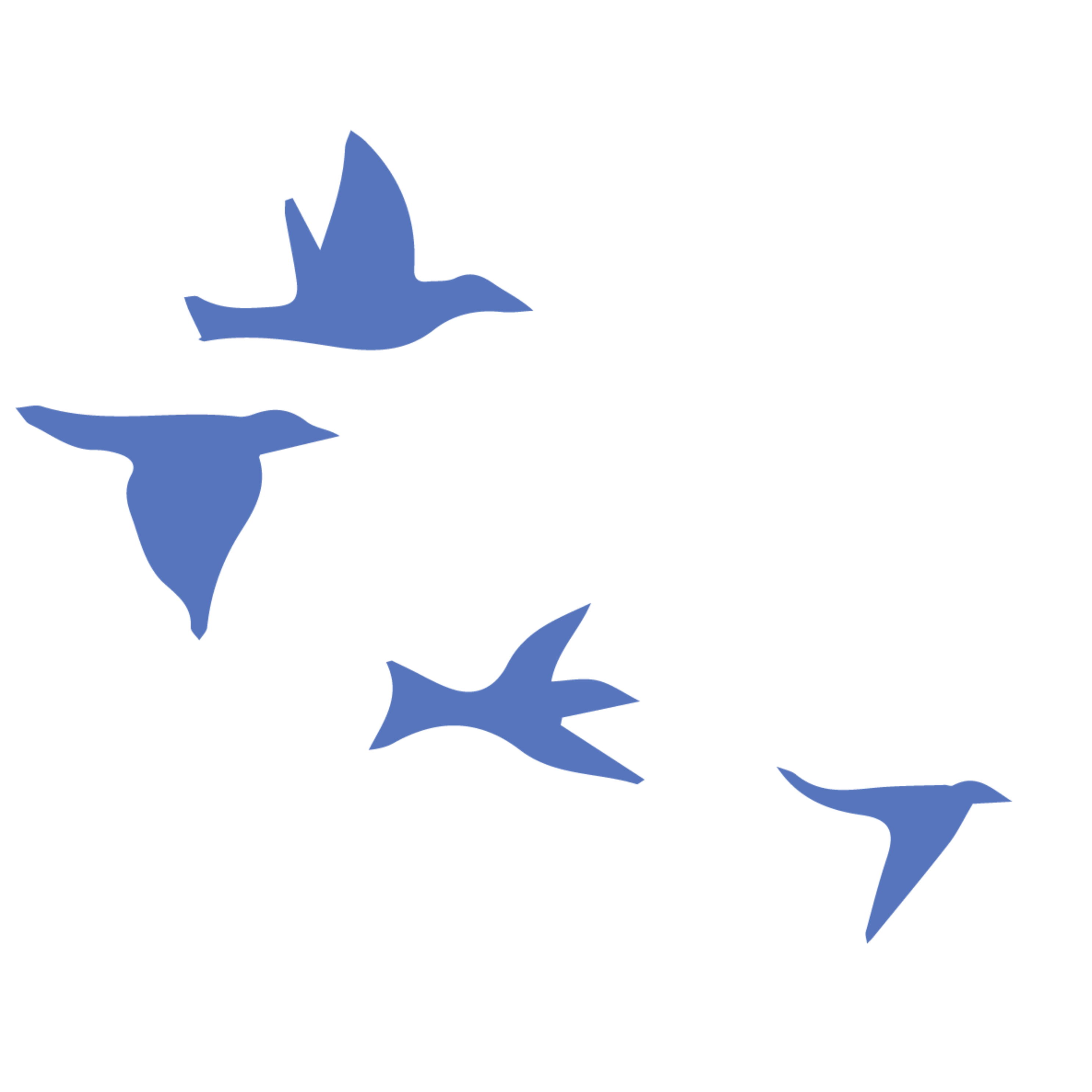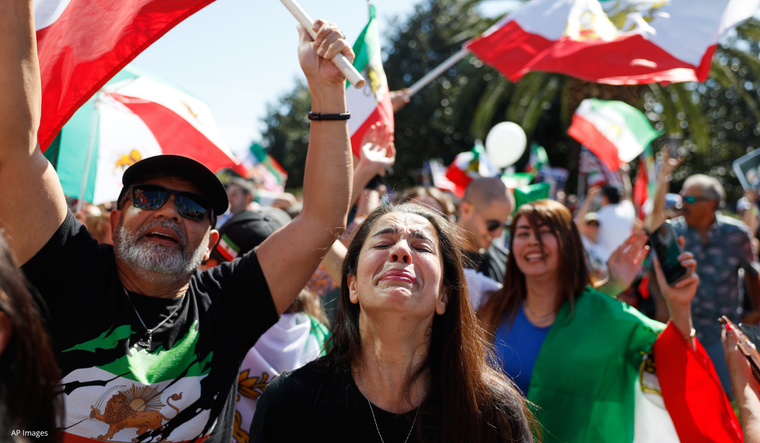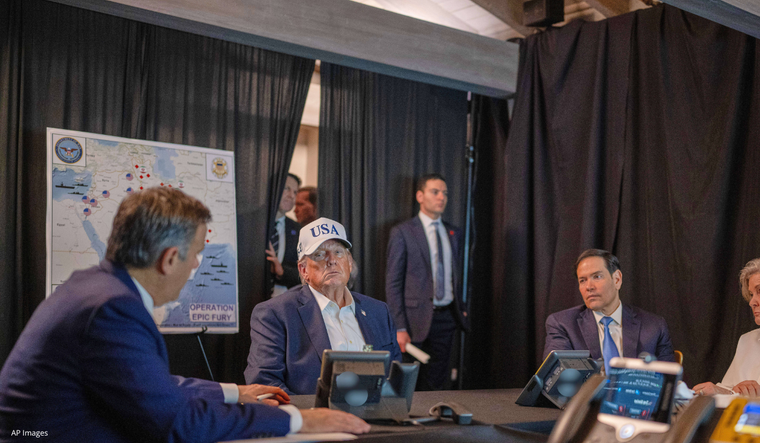What It Really Takes to Be Resilient When the World Feels Like Too Much

Some losses happen suddenly, violent, unmistakable. Others unravel slowly, a quiet erosion of the familiar. Either way, loss fractures our sense of certainty, and if we aren’t careful, it can hijack our attention entirely.
I know this firsthand.
The fire that tore through our neighborhood didn’t just take homes. It took belonging and trust. It erased the casual rhythms of daily life: neighbors waving on their morning walks, kids spilling onto fields for Saturday sports, the barista who knew my order before I spoke. It dismantled what was familiar.
The floods that tore through Texas were another kind of devastation—swift, unforgiving, and heartbreakingly personal. They claimed homes, livelihoods, and far too many lives, including the lives of children at summer camps, places we’ve always trusted to be safe. For so many families, this wasn’t just a weather event. It was the loss of safety, of ritual, of the illusion that if we do everything “right,” our children will come home whole.
And it raises the question so many of us ask in the wake of the unthinkable: How do we keep going when the ground beneath us gives way?
In the weeks that followed the fire in my community, I kept waiting for some internal switch to flip, for the feeling of normalcy to return. That’s what we’re told resilience is, right? The ability to bounce back?
But what I’ve learned, through research, through my own experience, and through the countless people I’ve worked with, is that resilience alone isn’t enough. Resilience is what allows us to endure impact. But without focus, we stay stuck in survival mode, mistaking endurance for progress.
And in a world engineered for distraction, the mental fog of grief and upheaval can feel impossible to cut through.
Why Resilience Won’t Rebuild Your Life
I’ve spent years studying resilience—the science of what makes people withstand adversity. I wrote an entire book about it. But resilience is often misunderstood. It’s not about bouncing back to what was; it’s about learning to live with what is.
The problem is, resilience doesn’t give us a roadmap forward. It’s a survival mechanism, not a strategy. And survival mode, while necessary in crisis, can quickly become a trap.
After the fire, I watched myself and others around me default to survival instincts:
· Hypervigilance: Bracing for the next disaster, unable to fully exhale.
· Mental fog: Struggling to make even small decisions because everything felt overwhelming.
· Emotional exhaustion: Mistaking exhaustion for endurance, thinking if we just pushed through, things would “feel normal” again.
But loss doesn’t just require endurance. It requires clarity. And that’s where focus comes in.
Focus Is What Moves Us Forward
If resilience is about withstanding impact, focus is about making sure we don’t get stuck in survival mode.
In a world designed to pull us in a thousand directions—where our attention is a commodity and our minds are fragmented by endless distractions—learning how to focus is no longer just a skill. It’s a survival necessity.
After the fire, I had to consciously shift my mindset from getting through to moving forward. Here’s what that looked like:
I stopped waiting for clarity and started creating it. I couldn’t think my way into a new reality, I had to act my way into it. That meant making one decision at a time, even when I didn’t feel ready.
I focused on what was within my control. Instead of fixating on everything I had lost, I channeled my energy into tangible actions—one conversation, one decision, one step forward at a time.
I prioritized connection. Before homes could be rebuilt, community had to be. Isolation is a byproduct of trauma, but focus requires engagement. I made it a point to reach out, to show up, even when I felt disconnected.
I let go of the idea of “bouncing back.” There was no “back” to go to, only forward—deliberately, imperfectly. The question wasn’t how to return to what was, but how to build something new.
We see this same ache surface in Texas. The families impacted by the floods aren’t just grappling with loss; they’re navigating the disorientation that follows. For many, just getting through each day feels like a feat. When sadness feels too heavy and the world too loud, we don’t need a five-year plan. We need one next breath. One reachable step. One tiny act of agency. That’s where forward begins. Not with clarity or certainty, but with small acts that say: I’m still here. I’m not giving up.
That might mean naming what you’re feeling, even if it’s messy. Texting a friend. Drinking water. Washing a dish. Shrinking your timeline to just today or even the next ten minutes.
And yet, slowly, quietly, some are beginning to take those first imperfect steps: organizing, connecting, rebuilding. That’s what forward looks like in the aftermath—not dramatic leaps, but deliberate, steady acts of intention. Wherever you are, if you’re feeling paralyzed by sorrow or stuck in survival mode, the invitation is the same: to move forward with presence, community, and focus.
Resilience steadies us, but it’s focus that actually shows us where to go next.
The New Equation for Moving Forward
Our culture glorifies resilience. We admire people who endure hardship with quiet strength, who “push through” without complaint. But we rarely talk about what comes next.
Resilience is instinct. Focus is intention.
Resilience is survival. Focus is transformation.
Resilience is accepting what is. Focus is deciding what comes next.
And in an era of constant digital distraction, reclaiming focus isn’t just about productivity—it’s about reclaiming our lives. Whether in the aftermath of personal loss, a crisis, or simply the slow erosion of what we once thought was certain, the ability to direct our attention is what determines our trajectory.
If we don’t choose where to place our focus, the world will choose for us.
Loss Never Waits for Us to Be Ready
The thing about loss is that it doesn’t care about our timelines. It doesn’t wait for us to be ready. But if I’ve learned anything, it’s this:
You don’t have to be ready. You just have to decide what comes next.
Because resilience is how we endure.
But focus? That’s how we rise.
Dr. Zelana Montminy is a renowned behavioral scientist pioneering a transformative approach to mental health and resilience. She is the author of the acclaimed 21 Days to Resilience and the forthcoming Finding Focus: Own Your Attention in an Age of Distraction, which you can pre-order here.
Please note that we may receive affiliate commissions from the sales of linked products.



